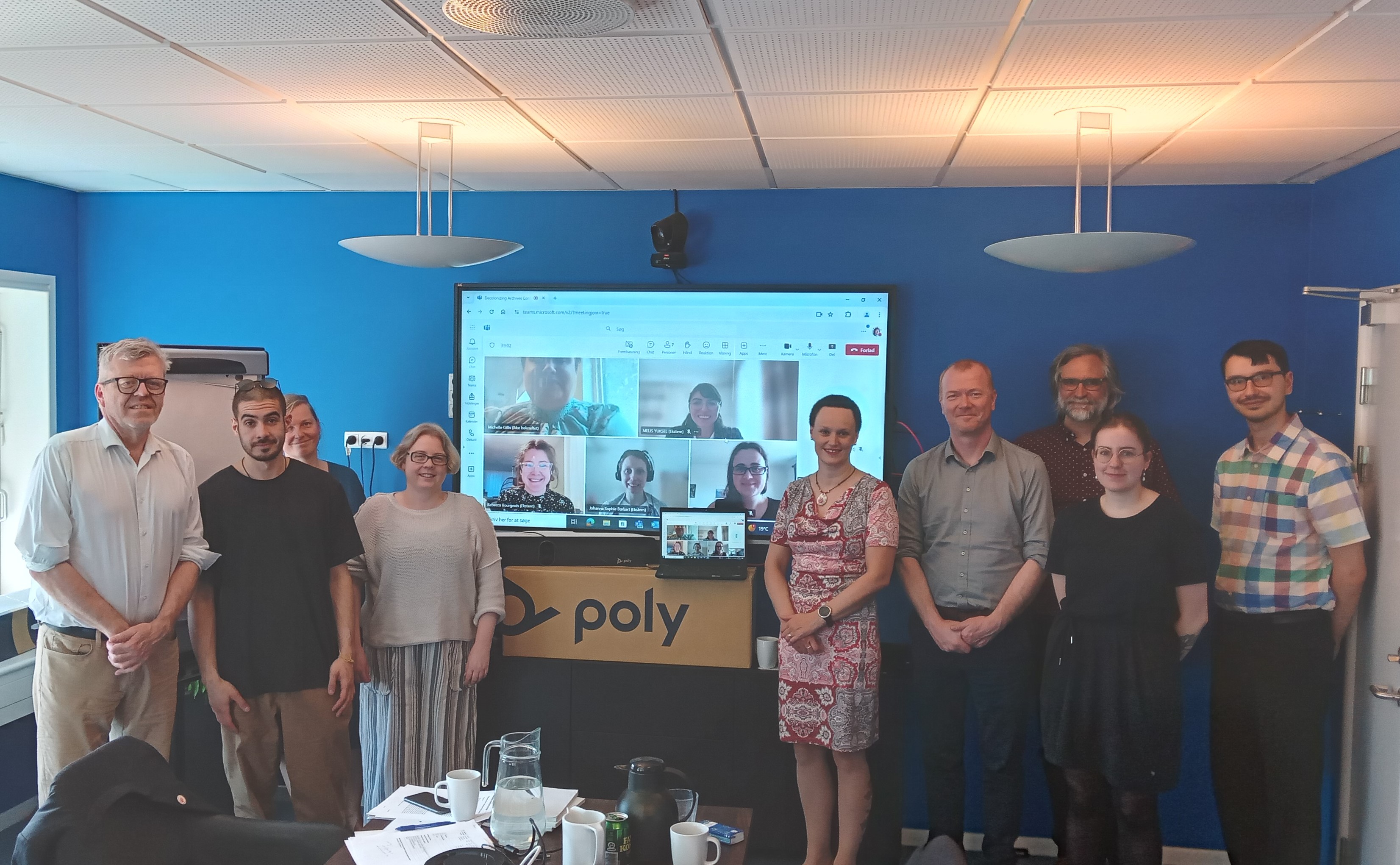 How can Peoples exercise control over their historical narratives in Arctic colonial and post-colonial contexts? What is the role of archives and archival institutions in constructing a People’s (hi)story? And how do the principles of international law strengthen claims for control over archives?
How can Peoples exercise control over their historical narratives in Arctic colonial and post-colonial contexts? What is the role of archives and archival institutions in constructing a People’s (hi)story? And how do the principles of international law strengthen claims for control over archives?
Twenty-three experts, researchers and practitioners met at the Danish Institute for International Studies in Copenhagen to consider the roles of international law and archives in the decolonial process. They sought workable solutions for more equitable control of archives in colonial and post-colonial Arctic contexts and to facilitate Peoples’ ‘historiographic sovereignty’ (Nonbo Andersen, 2024). They held a public seminar at which around fifty guests attended with a further fifty following the event online, with Raymond Frogner, Head of Archives/Senior Director of Research, National Center for Truth and Reconciliation, Canada, giving the keynote address. The seminar is available for catch-up viewing online. They also held a workshop for invited guests at which working papers were presented and discussed.
Archives document, classify and crystalise the rights of individuals, communities and nations, being instruments of legal and political power, as well as privileged historical sources. As a result, archives have been seized, claimed and disputed during independence struggles, regime changes, military occupations and (de)colonisation. The party which controls the records determines which documents are retained and which destroyed as well as how they are organised, who may access them and on what terms (Lowry, 2023). Yet, without control over their own historic records, Peoples cannot fully enjoy self-determination – or, in other words, decolonise. The archival record provides evidence of the pre-colonisation presence of a People on its land, the continuity of its occupation, and its traditional legal system. These are essential to a People’s claims for and realisation of self-determination in international law. Control over archives also enables a People to construct history from its own point of view, allows it to connect to its own cultural heritage and to establish and reinforce its national identity. The ongoing work of historic inquiries and reconciliation in the Western Arctic countries points to the urgency of this long-neglected issue and also creates its own archives.
The decision about what, how and where to archive is the basis of States’, Peoples’ and individuals’ legal status and claims. For example, in the Arctic, in the absence of settler populations, the written archival record may be the only evidence of a State’s (purported) occupation over a vast territory (Johnstone 2021). Peoples’ claims for restoration of their territories and/or rights to exercise free, prior and informed consent over resource developments in their lands may also pivot on the documents a colonising State has selected to preserve. Constraints on access to archives also have very personal impacts on individuals seeking information about their own lives – such as birth, adoption, marriage, health and school records. Written archives are privileged in Western legal systems as reliable records of fact even when Indigenous knowledge and evidence points to their errors or incompleteness (Golding, et al, 2021).
IASC´s generous support facilitated the participation of Lisa Mullins, archivist for ICC Canada, who presented the ICC´s novel archive at the public seminar. The ICC archive is the first archiving system based on Inuit principles. IASC also funded the participation of masters student Jordane Liebeaux who presented a working paper on reconciliation and archives at the workshop. A selection of the papers emanating from the seminar and workshop are now under review for publication in a special issue of The International Journal of Heritage Studies.
This was the first in-person gathering of the recently launched Arctic Archives of the U Arctic Thematic Network on Arctic Law. The subgroup is open to anyone interested in the topic of displaced archives in the Arctic.
Scientific Highlights:
- Peoples have the right, under international law, to define their own histories, perceptions and representations of the Arctic as an element of self-determination.
- Control over the archival record, not just access, is essential to Indigenous and post-colonial self-determination.
- Reconciliation in the Arctic requires access to archives and creates its own archival record which in turn requires culturally appropriate curation.
Date and Location:
May 2-3, 2024 I Copenhagen, Denmark
IASC Working Groups funding the Project:
Project Lead
Rachael Lorna Johnstone (University of Akureyri, Iceland)
Year funded by IASC
2024
